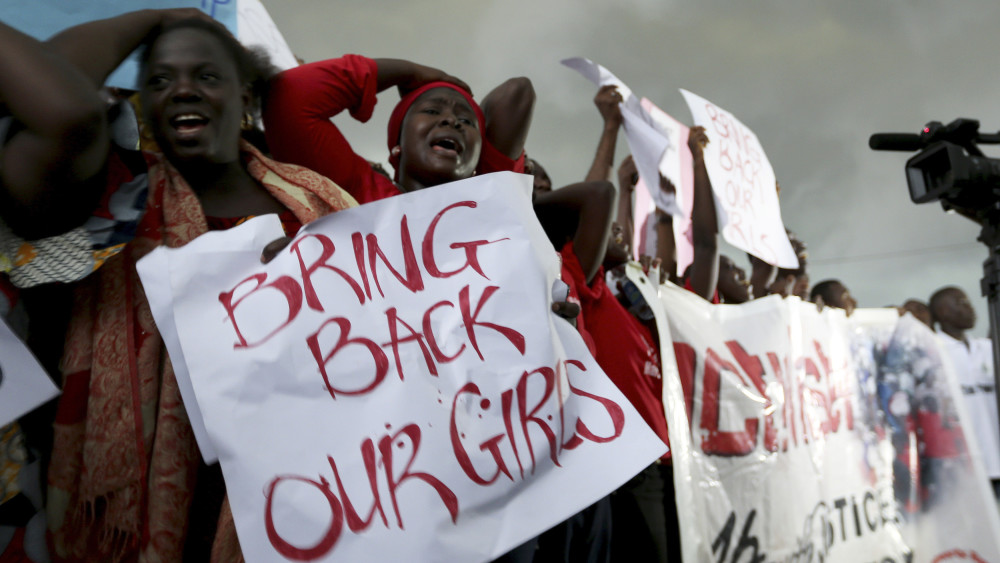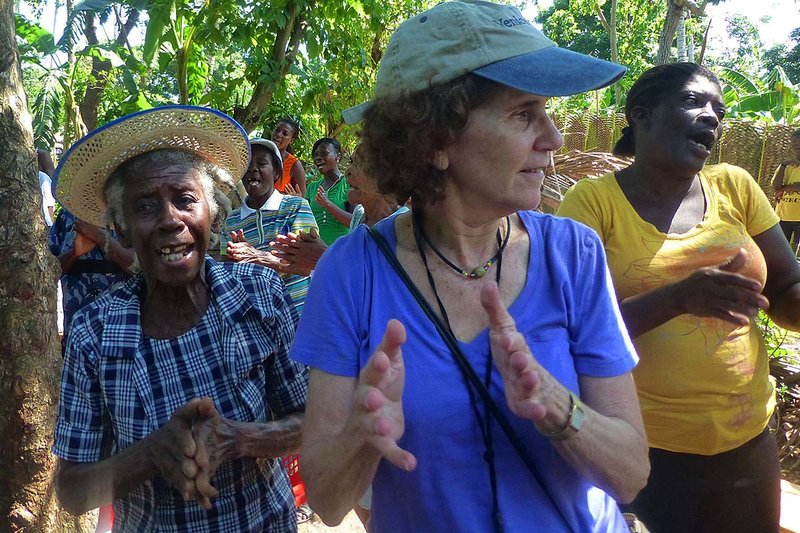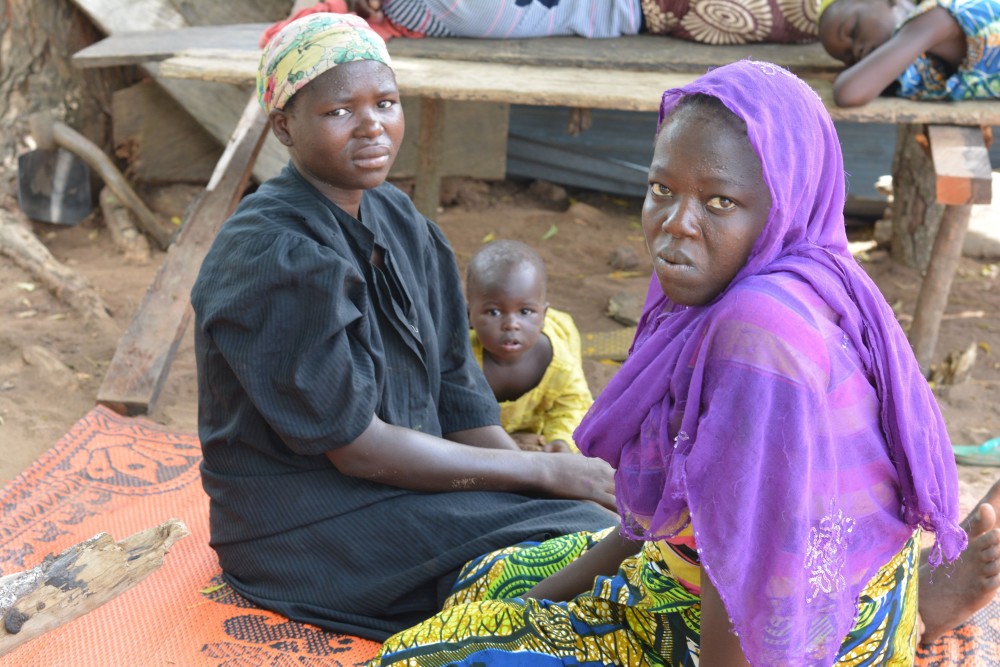By Robyn Dixon
Los Angeles Times.
JOHANNESBURG
An extremist Nigerian insurgent leader boasted Monday that he had kidnapped more than 270 schoolgirls who three weeks ago were loaded into trucks by gunmen in the dead of night, according to a video released to Agence France-Presse.
“I abducted your girls. I will sell them in the market, by God,” Abubakar Shekau said, according to the news service, which was reporting on a video showing the leader of the radical Islamist group Boko Haram.
Shekau, who repeatedly has been declared killed by Nigerian authorities, appeared on the video referring to the Nigerian schoolgirls as “slaves,” AFP reported. He was surrounded by fighters shooting automatic rifles in the air, yelling “God is great.”
The number of students abducted April 14 has never been clear. They had gathered from neighboring district schools to sit for exams in Chinok village in northeastern Borno state, Boko Haram’s stronghold.
Even Nigerian President Goodluck Jonathan expressed uncertainty as to the number taken, although police put it at 276. In recent days, authorities have called on parents to come forward with photographs and names of missing children.
Nigerian activists have launched a Twitter campaign, with the hashtag BringBackOurGirls, calling on the government and security forces to do more to recover the children. The effort comes amid unconfirmed reports that some of them may have been spirited into neighboring countries or married off to their captors.
Boko Haram, designated a terrorist group by the United States last year, is believed to have links with al-Qaida affiliates in Africa and aims to turn Nigeria into an Islamic state. It is bitterly opposed to secular education and has attacked schools, colleges and churches as well as police stations, prisons and barracks.
Thousands have died in the insurgency, which has turned northern Nigerian into a war zone.
The abductions come at an embarrassing time for the country, which is due beginning Wednesday to host the World Economic Forum in Africa conference, the continent’s version of the international gathering in Davos, Switzerland.
In addition, Boko Haram is widely blamed for two recent bombings in Abuja, the capital, where the conference will be held, Nearly 100 people were killed in the attacks, and thousands of security forces have been deployed in the city to prevent terror strikes during the gathering.
It has taken almost three weeks after the girls’ abduction before Jonathan mentioned the incident, saying Sunday that the government was doing its best to recover the children.
He acknowledged that authorities have no idea where they were being held, saying that security forces had searched and deployed sophisticated scanning equipment without success.
“I am going to do everything I can to ensure that those girls are returned to their parents and the perpetrators will face justice,” the president said in a television interview.
“We promise that wherever these girls are, we will surely get them out,” he said. “One good thing that I’m a bit happy and I believe most Nigerians are happy is that there is no story that any of them has been hurt in terms of injured or that.”
The Associated Press, citing an unnamed intermediary dealing with Boko Haram, reported that two of the girls had died of snake bite and 20 others were ill.
Critics attacked the president for calling on parents to “cooperate” with authorities, saying that parents had been trying for weeks to get officials to do more.
Nigerian first lady Patience Jonathan burst into loud sobs, pushing up her glasses and pressing a white handkerchief to her eyes, in televised statements on the matter Sunday. However, police detained Naomi Nyadar, one of the leaders of the protests over the girls’ fate, at an Abuja police station after she met with the first lady.
Patience Jonathan denied accusations from another activist, Saratu Angus Ndirpaya, that she had ordered the police to arrest Nyadar. She called on protesters to stop demonstrating, according to the state-controlled News Agency of Nigeria.
“You are playing games. Don’t use schoolchildren and women for demonstrations again. Keep it to Borno, let it end there,” she said, according to the agency.
Nigerian activists have been calling on fellow citizens and civic activists groups to use the World Economic Forum in Africa to pressure authorities to do more to free the girls.
Analyst Tolu Ogunlesi wrote in Nigeria’s Punch newspaper that there was a pervasive government culture of treating the population with disdain, referring to the president “seemingly wondering what the fuss is all about regarding (hashtag)BringBackOurGirls.”
“Think of those abducted girls and their families as ‘customers’ of the Nigerian state/government, who expect and deserve to be treated with respect, and to receive efficient service, and you might start seeing things differently,” he wrote.

















































































































































































































































































































































































